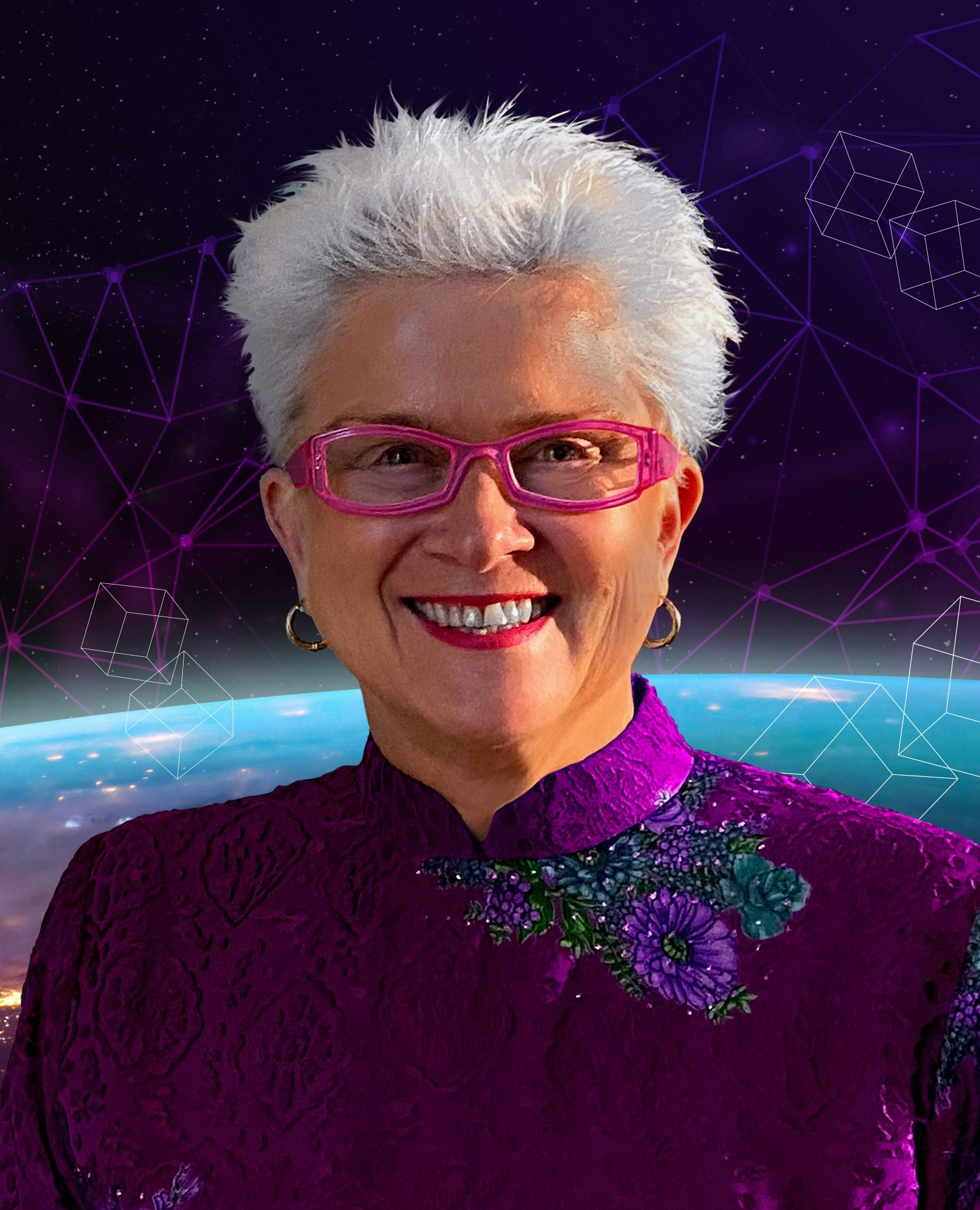

A glimpse into the future
The future of the internet, Web3, is shaping up to be a transformative force for various industries. In the hospitality sector, this evolution brings forth a myriad of opportunities and innovations. Therefore, it promises to redefine the way businesses operate and customers experience services.
Web 3, the internet of value, envisions a decentralized landscape. Thus, integrating DeFi, NFTs, decentralized governance and self-sovereign identity. Furthermore, it stands as an information network facilitating peer-to-peer value transfer. Notably, the metaverse constitutes its immersive face, offering innovative and convenient ways for companies to deliver products.
Web3 holds the potential to empower the hospitality industry. It helps foster innovation, accessibility and peer-to-peer interactions while reducing reliance on intermediaries. Its applications include decentralized and personalized reviews. In addition to security enhancements. Furthermore, the integration of NFTs and the Metaverse helps it create virtual experiences. In addition to, allowing the creation of unique digital assets linked to travel.
Challenges of traditional intermediaries
There are risks associated with traditional intermediaries in the hospitality sector. For instance, third-party management, transaction fees and centralized information storage can be mitigated by the decentralized nature of Web3 technologies. Furthermore, decentralized and personalized reviews, facilitated by blockchain, increase user trust and authenticity while reducing the risk of manipulation.
Web3 opens up opportunities in security, trust, traceability, automation and authenticity. Moreover, it enables peer-to-peer interactions, transparent transactions and real-time customer feedback. The tokenization of tourism assets, facilitated by blockchain, allows fractional ownership, increasing liquidity and engagement for both service providers and tourists.
Decentralized customer communities
Web3 facilitates decentralized customer communities, attracting and engaging customers without intermediaries. User-generated content in immersive platforms fosters repeat visits and loyalty. Decentralized reviews combat fake reviews, enhancing transparency, while decentralized loyalty programs simplify reward redemption across multiple providers. IoT devices and blockchain can confirm guest stays, creating NFTs as proof of experiences, providing verified feedback, and enhancing the credibility of reviews. Communities can also participate in ownership through tokenization of tourism assets, including hotels and attractions, which allows for fractional ownership, increasing liquidity and reducing costs.
Web3’s decentralized identity management gives users control over their data, increasing privacy. Marriott’s exploration of blockchain and data privacy exemplifies efforts to create secure digital identification programs, eliminating security vulnerabilities.
Metaverse in hospitality
The Metaverse, or the immersive Web3, offers advanced virtual experiences of hotels, cruise ships and destinations. Users can take virtual tours, explore accommodations and engage in immersive experiences. Furthermore, metaverse, combined with NFTs, facilitates loyalty rewards, as well as virtual tours and simplified rebooking processes through smart access NFT keys.
Brands in Web3
Brands in Web3 leverage NFTs for gated content, co-creation incentives and virtual-physical connections. Token-based memberships in private clubs offer unique experiences, perks and tradable assets, introducing a novel approach to loyalty programs.
McDonald’s venture into the Metaverse
McDonalds has already filed applications to the US Patent and Trademark Office and indicated its interest in opening virtual shops in the Metaverse.
SITA’s Metaverse predictions for airports
SITA, the leading airline industry provider, predicts that by 2030, “metaverse operations will be commonplace at leading airports, playing a vital role in optimizing processes, avoiding disruption and facilitating intuitive, immersive control of intelligent airports. Metaverse training courses for operational staff will ensure an in-situ experience in an immersive and realistic simulated environment. VR and AR will be used for auxiliary and off-site working processes, engaging workforces remotely in an efficient and stimulating format.”
Luxury brands and hotels in the NFT Space
Luxury brands are already entering the NFT space with limited edition collections and numerous hotels have already launched their own NFT programs, like Le Bristol in Paris.
Metaverse technologies in various sectors
Metaverse activations, AI and NFT collections can offer unique solutions to the sector’s inherent complexity and provide revenue-generating opportunities. These technologies can attract a younger demographic, enable virtual representations of properties for cost-effective global sales, transform marketing and customer service, and revolutionize membership systems through token-based memberships.
Token-gated experiences and membership programs
Private clubs and loyalty programs will create token-gated experiences, perks and benefits instead of pushing customers to provide their emails, personal details and phone numbers. Examples include Mandala Club in Singapore, Club3 in Los Angeles and Drunken Monkeys Members Club in London. A Drunken Monkey NFT allows lifetime access to a luxury concierge membership spanning 20 global destinations. The digital membership model means that every membership (represented by a one-of-a-kind NFT) is tradable on the secondary market, allowing members to enjoy elite perks and explore the potential for investment and further financial gain.
Shanghai’s web3 impact on tourism
Shanghai expects Web3 to generate USD 6.9 billion for tourism annually by integrating blockchain, AI and virtual reality. The city aims to digitize cultural artifacts, loyalty programs and offer secure and transparent travel services. It underscores the broader global drive to use Web3 for curated and personalized travel experiences.
As Web3 and the metaverse continue to evolve, the hospitality industry stands on the brink of a major transformation. The adoption of decentralized technologies offers a host of opportunities, from improving transparency and reducing costs to enhancing customer experiences through virtual tours and immersive interactions. Shanghai’s ambitious Web3 tourism ecosystem serves as a testament to the transformative potential of these technologies, promising a future where hospitality embraces decentralization, personalization, and innovation. The journey has just begun.

Dr. Jane Thomason
Emeritus chair of the World Metaverse Council, author and influencer
















